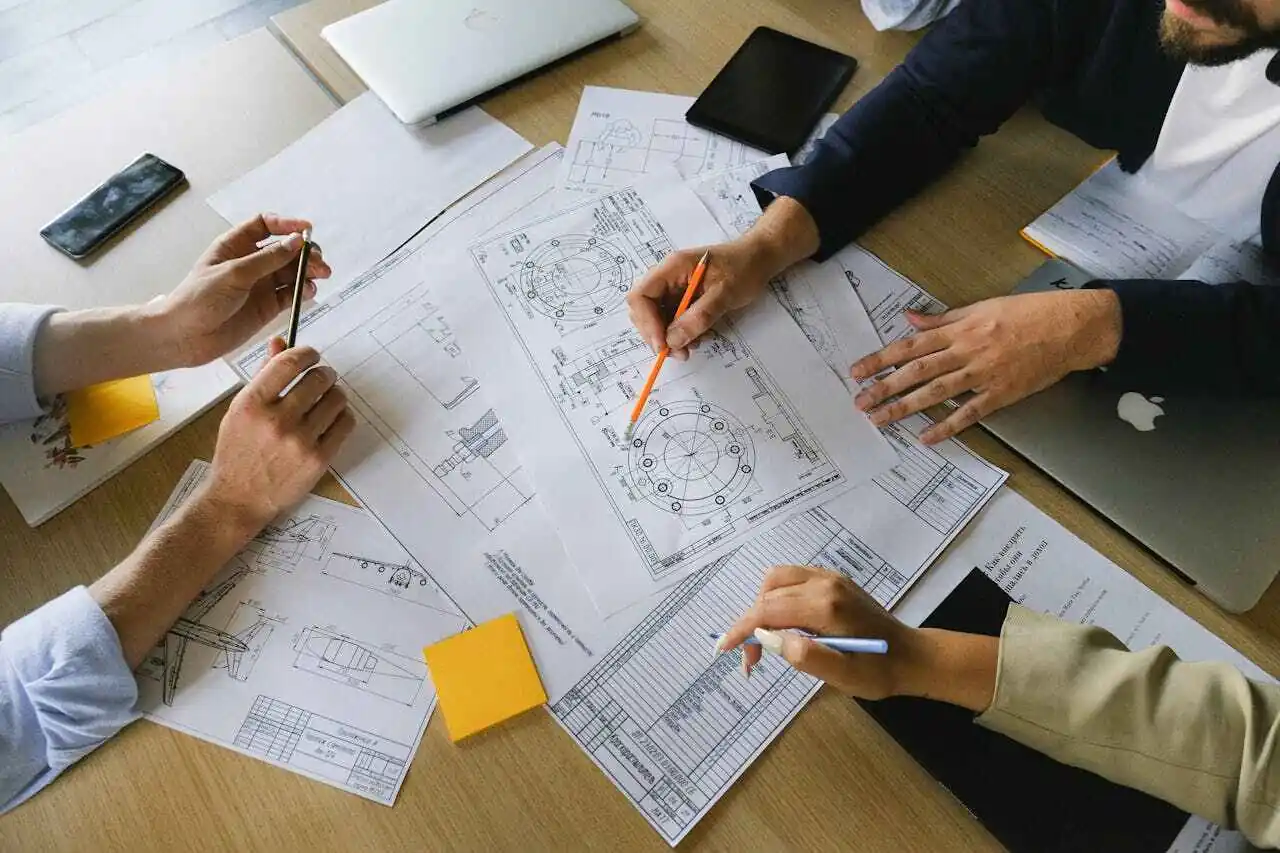8 Time Tracking Best Practices for US Engineers
In the face of dynamic and ever-evolving times, US engineers are looking for ways to overcome obstacles that can hinder their quality of work. Time tracking is a vital solution to address these challenges and optimize performance. In this article, we will delve into the best practices of time tracking tailored to the needs of US engineers.

Photo by ThisIsEngineering on Pexels
Tip 1: Make Clear Goals
As a US Engineer, the first best practice in time tracking that leads to innovation and growth is to craft clear and realistic goals. By knowing what you want to achieve, you give yourself direction and reason for your work. You also need to consider the project size, available resources, and time limit. Another important factor is how your plan fits the organization’s overall goals. You want to ensure your work is aligned with the bigger picture and contributes to the shared vision. And finally, check that you have set S.M.A.R.T. goals that are specific, measurable, attainable, realistic and time-related.
Tip 2: Split Big Projects into Smaller Tasks
As a US engineer, you can stay focused, work more efficiently, and achieve better results by breaking big projects into smaller tasks. This key strategy helps you manage complex projects by dividing them into manageable chunks. You can use your time and resources effectively and steadily progress toward your goals.
To use this best practice, you can create task lists and work breakdown structures that outline the specific actions and deliverables required for each project stage. This helps you visualize the project’s scope and identify dependencies between tasks. Tools like the Eisenhower Matrix can help you decide which tasks are more important or urgent than others. You can spend your time wisely by focusing on high-priority tasks and considering opportunities for task delegation. Delegating specific tasks to team members who possess the necessary skills and expertise lets you leverage their collective strengths and keep the workflow efficient.
Tip 3: Use Time-blocking to Plan your Day
Time blocking is a way to plan your day by giving yourself a certain amount of time for each task. This can help you work better and faster as a US engineer. Decide how much time you need for different engineering tasks, such as designing, researching, analyzing, meeting with others, or planning your project. Then, make a schedule for yourself and stick to it. This way, you can focus on one thing at a time, avoid getting distracted, and use your time well.
Time blocking helps you organize your day and get ready for each task. Think about what is most important and give it more time. See how your task fits with your organization’s goals and how it helps the big picture. To use time blocking well, use tools like calendars or apps that let you make and change your schedule easily. By following your time blocks, you can be more disciplined and make sure that each task gets the attention and effort it deserves.
Tip 4: Stay Focused and Avoid Distractions
“Multitasking can actually decrease productivity.” – Carol Evenson, Engineering Management Institute
Engineering work needs a lot of concentration and attention to small details. So, as a US engineer, you should take an inventory of things that can distract you in the workplace. Common distractions are people engaging you in conversation, too much noise, getting messages or emails, checking social media, or doing other things unrelated to work. These things can make engineers lose focus, work slower, and make mistakes.
Some best practice tips for focus:
- Organize: Make your workspace tidy and consider multiple monitors.
- Mute notifications: Schedule time periods for checking messages and mute notifications between.
- Avoid multitasking: Engineers can work better and finish their tasks by doing one thing at a time and giving it all their attention.
- Use time focus methods: The Pomodoro Technique can improve focus and productivity. This method means working hard for a short time and then taking a short break. This keeps your mind fresh and focused for longer.
By focusing and not getting distracted, US engineers can produce high-quality work and finish their projects on time.
Tip 5: Use Time Tracking Software
You can greatly benefit from using time tracking software for engineers to streamline your workflow and enhance productivity. Automated time tracking software simplifies the process of tracking and recording your work hours. These tools often come with features such as automatic time capture, project/task categorization, and detailed reporting, allowing you to track your time spent on different engineering activities accurately.
Time tracking software saves valuable time and avoids the hassle of manual time entry and tracking. The software automatically records your working hours and provides insights into your timesheet, helping you identify areas where you can improve efficiency and optimize your productivity.
Additionally, time tracking software offers convenient features such as project/task management, time budgeting, and integration with other engineering tools. This enables you to manage your engineering projects better, allocate time effectively, and ensure that your work aligns with project timelines and goals.
Tip 6: Review Your Time Tracking Data
As an engineer, it is crucial to regularly review and analyze your time tracking data to gain valuable insights that can enhance your performance and productivity. By examining your time tracking reports, you can uncover patterns, identify areas for improvement, and make data-driven decisions to optimize your work.
Analyzing your time tracking data clearly shows how you allocate your time across various engineering tasks and projects. It allows you to identify time-consuming activities, areas of inefficiency, or potential bottlenecks in your workflow. By recognizing these insights, you can make adjustments and prioritize your time more effectively, ensuring that your efforts align with your engineering goals.

Photo by Anna Shvets on Pexels
Moreover, reviewing your time tracking data helps you evaluate your productivity and track your progress towards achieving your engineering targets. It enables you to identify high-value activities and focus on the tasks that contribute most to your engineering success. By leveraging the insights gained from your time tracking reports, you can make informed decisions, allocate resources efficiently, and continually improve your work performance.
Tip 7: Communicate with Team Members
In your engineering projects, effective communication with your team members plays a crucial role in ensuring successful outcomes. You can leverage their expertise, collaborate efficiently, and achieve greater results by working well with others.
Clear and open communication fosters a collaborative environment where team members can share ideas and insights freely. It enables you to align your efforts, clarify project requirements, and ensure everyone is on the same page. You can foster effective collaboration and build strong working relationships by actively listening to your team members and expressing your thoughts and concerns.
Integrate communication tools into your time tracking software such as project management software, team messaging apps, and video conferencing platforms. These tools allow for real-time discussions, document sharing, and seamless coordination, regardless of geographical distances. By leveraging these communication tools, you can streamline your project workflows, enhance collaboration, and ensure effective information exchange within your engineering team.
Tip 8: Take Breaks and Practice Self-Care
As an engineering professional, it’s essential to prioritize rest and self-care to maintain your well-being and optimize your performance. Taking regular breaks and practicing self-care helps you recharge and enhances your focus, creativity, and overall productivity.
Engaging in activities that help you relax and recharge, such as walking, practicing mindfulness, or pursuing a hobby, can significantly improve your mental and physical well-being. Incorporating these activities into your daily routine creates space for self-care and stress reduction, ultimately enhancing your ability to tackle complex engineering tasks with clarity and efficiency.
Additionally, taking short breaks throughout the day allows you to prevent burnout and maintain high levels of concentration. Stepping away from your work, even for a few minutes, helps refresh your mind, reduce fatigue, and improve overall cognitive function. Whether you take a short walk, practice deep breathing exercises, or stretch your muscles, find activities that help you relax and recharge during your breaks.
Implementing Time Tracking Strategies for Engineers
As engineers in the US, implementing effective time tracking strategies is crucial for optimizing our productivity, achieving our goals, and staying ahead in a dynamic industry. Throughout this article, we’ve explored eight best practices to track time better and enhance performance.
I encourage you to embrace these time tracking practices for engineers and make them a part of your daily routine. We gain valuable insights, make informed decisions, and maximize our efficiency by tracking our time effectively. Let’s strive for continuous improvement, adapt to the changing demands of our industry, and use time tracking as a tool to excel in our engineering careers.
Remember, time is a finite resource, and how we manage it determines our success. So, let’s be proactive, take control of our time, and unlock our full potential as engineers. Here’s to better time tracking and achieving new heights in our professional journey!





